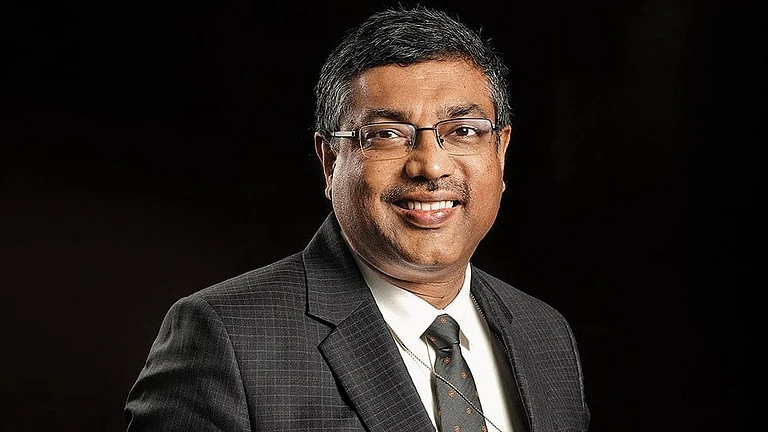How are IT firms leveraging AI to automate workflows? What impact is this having on business?
The use of AI and data, including repurposing data through large language models, is becoming mainstream. Many back-office functions, such as finance, accounting and customer service, are now managed by AI agents instead of human agents. Routine tasks integrated into workflows are increasingly automated, making AI agents or bots a core part of operations.
As a result, back-office processing across finance, accounting and HR is now driven by AI interventions. Intelligence is embedded into workflows through data, which helps gather insights at every stage. This enables a better understanding of customer preferences and timely prompts for assistance.
Do you see AI as a threat or will it open new avenues for employment?
The question is not whether jobs will be created but rather how jobs will be replaced or displaced. Lifelong learning is essential.
Individuals who upskill and adapt to AI-driven environments will continue to find opportunities, while those unwilling to evolve may struggle.
Will AI deepen inequality? How can we bridge this gap?
Corporates along with the government, have built platform technologies through telecom networks. AI plays a role in this by adapting to a person's learning speed and language, ensuring they receive information tailored to their capabilities, preferences and interests. This personalisation helps deliver the right content at the right time and place. As AI integrates with users, it repurposes content to enhance accessibility.
As a result, the digital divide will naturally shrink because access to platforms, networks and information is expanding. Today, someone in a remote area of Kerala, Andhra Pradesh, Madhya Pradesh or Uttar Pradesh can seamlessly engage in transactions with corporations in Mumbai, Delhi, Kolkata or Chennai. This is the world we live in—where learning and connectivity are available anytime, anywhere, right from home.
Mid-level IT jobs are at risk of automation. Is automation inevitable?
Automatic code generation, minimalistic code generation and new types of automated coding will become the norm. The software industry has been progressing in this direction for decades. Around 30 years ago at TCS, tool-building efforts focused on automating code and software generation for specific sectors like banking, finance, insurance, health care and manufacturing. Automation will continue to advance, reducing the need for manual coding.
Instead of writing code, users will simply provide specifications through verbal commands.
For instance, today, if you dictate a conversation, it is automatically transcribed into English and can be translated into other languages. This frees up time for other tasks.
The key question is whether reskilling alone will be enough to offset potential job losses. The answer lies in a combination of reskilling and acquiring entirely new skills. Roles such as data scientists, cloud management specialists, cybersecurity experts and professionals in domains like health care, public health, space-based manufacturing and advanced welding will see exponential growth in demand.
The Indian IT industry has been a significant contributor to the middle-class economy. How should companies balance between automation and workforce expansion?
Workforce expansion will primarily happen through entrepreneurs, meaning the start-up ecosystem will play a crucial role. The opportunity to build an entrepreneurial organisation is becoming a significant possibility. Large corporates must consciously observe these developments—not just through direct hiring but by partnering with smaller enterprises, start-ups or incorporating their technologies into their solutions. It’s no longer just about numbers but about the intelligent utilisation of intellectual assets.
So, will hiring become more selective?
Yes. The research aspect of recruitment will be significantly enhanced, emphasising the creation of intellectual property, patents and their application in solution-building—especially through AI bots, AI agents, generative AI, augmented reality and other emerging technologies.
Do you see AI-driven solutions disrupting or reshaping India’s outsourcing edge in the industry?
India, with its 1.4bn people, has suddenly become one of the largest markets in the world. This means we must view India not just as a hub for innovation but as a massive market in itself. The shift happening now is that what is developed in India is becoming relevant to the world, rather than simply adapting global innovations for India. This is India's golden era.
How significant will AI integration be in jobs?
Every job can have an AI component. Every job will need to evolve as routine and mundane tasks become automated. Some job requirements may become obsolete and should be phased out quickly to avoid stagnation. The job market must adapt with a focus on climate change, sustainability and water conservation.
Should AI be taught from early childhood rather than starting in middle school?
Instead of emphasising AI as a subject, it is more important to equip children with the right tools and the ability to correct and innovate. Education should take an interdisciplinary approach—learning from nature leads to understanding mathematics, which in turn leads to algorithms and eventually AI.
Rather than enforcing uniformity, interdisciplinary learning should be prioritised.













